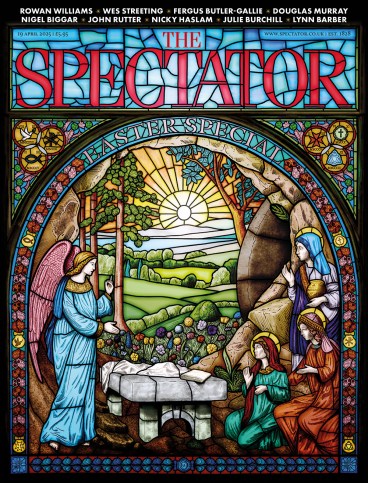
Live not by lies, Aleksandr Solzhenitsyn warned the West half a century ago, but we have hardly heeded him since. Fictions have bewitched our minds and captured our culture. Hard truths struggle to be heard. Last week BBC presenters took the leader of the opposition to task for her failure to watch a Netflix drama, Adolescence, which purported to explore the risks to young women from misogyny. At the same time they ignored Kemi Badenoch’s questions about real male violence – the abuse of thousands of girls by rape gangs in 50 British towns and cities. It is easier to think that we can protect young women by taking a stand against online grifters, such as Andrew Tate, who no one civilised seeks to defend, than it is to confront the failures of multi-culturalism, in which so many are complicit.
The same tendency to avoid reality was apparent in the reaction to the murder of the Southend MP Sir David Amess in 2021. The attack was motivated by Islamist ideology, yet several parliamentarians wanted instead to blame social media and campaigned to end online anonymity.
Failure to face the truth has skewed debate in so many areas of public life – and harmed innocents along the way. There are only two sexes, male and female, and the presence of the Y chromosome determines which you are. But the false creed that sex is mutable, that there are more than two genders, and that an individual can choose which gender he or she prefers led the NHS to prescribe drugs that likely made girls sterile and provide surgery that mutilated young women for life.
The high tide of this wicked gender ideology may be ebbing, but other fictions endure. The notion of white privilege permeates the public sector and our universities. This dangerous myth led the Sentencing Council to promulgate plans for justice based on skin colour or our police forces to put a temporary block on the hiring of white candidates; all the while it is children from the white working class who are the most disadvantaged group in modern Britain.
Our age is particularly susceptible to ideas which make their advocate seem enlightened, but which corrode the basis of our common life. As the American writer Rob Henderson explained in his memoir Troubled, the marker of elite membership in contemporary society is the embrace of fashionable theories – ‘luxury beliefs’ – that signal how unencumbered their holder is by ancient prejudice, but which bring misery to others. So the wealthy can suggest monogamy is outdated, inviting admiration for their liberation from Christian superstition, but children in poorer households who grow up without a stable family are much more likely to struggle and endure deeper poverty. It could also be pointed out that the credentialed elites who disdain marriage as a ‘piece of paper’ are not so quick to rubbish their degree certificates as worthless wood pulp.
Fictions have bewitched our minds and captured our culture. Hard truths struggle to be heard
While luxury beliefs may be a new feature for our time, man’s willingness to avoid reality is long-standing. As Francis Bacon explored in Of Truth 400 years ago, people opt for lies because truth is often difficult to acquire and, inevitably, limits freedom and compels responsibility. In a world where ‘my truth’ reigns, people are bound to nothing but their own desires. In a world where they submit to the truth, people must admit when they are in error and acknowledge what they owe to others.
Bacon’s essay begins with a reference to the crucifixion. ‘“What is truth?” said jesting Pilate, and would not stay for an answer.’ For Pilate, it was not the truth of Christ’s message and witness which mattered, but the applause of the crowd as he freed Barabbas in preference to Jesus. He contented himself that, whatever the truth was, by acquiescing to the will of the mob, civil order had been maintained.
Pilate, as has often been noted, operates as a typical politician. One can imagine him today allowing a Palestine Solidarity Campaign march to parade happily through London, overlooking the truth that the Hamas-supporting crowd are calling for the murder of Jews, and satisfying himself that the protest had passed ‘mainly peacefully’.
Amid the fictions of our time, the Easter story reminds us of the truth’s importance. Jesus knows he will be betrayed, denied and doubted, but is prepared to bear his cross because no earthly power can alter that which is eternal. In his act of sacrifice he affirms the greatest truth of all – it is by defying evil, affirming love and living for others that we find our highest fulfilment. One wonders what the reaction would be if the BBC asked a politician this Holy Week if he or she had been reading the Gospels, reflecting on the crucifixion and considering its importance.
What relevance does that ancient story have for our troubled contemporary society, many might ask? Well, perhaps a society that took the Easter story seriously and literally, rather than, say, Adolescence, would be less likely to live by lies and more willing to hold to what is true.








Comments